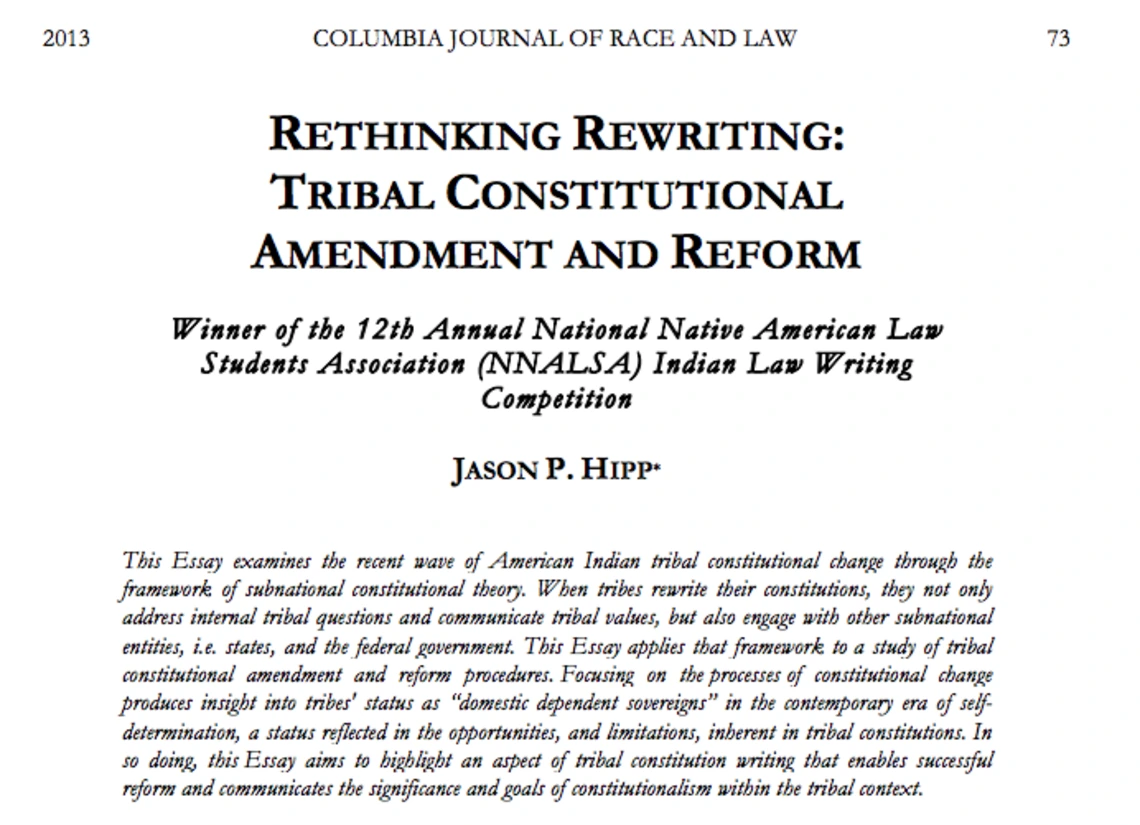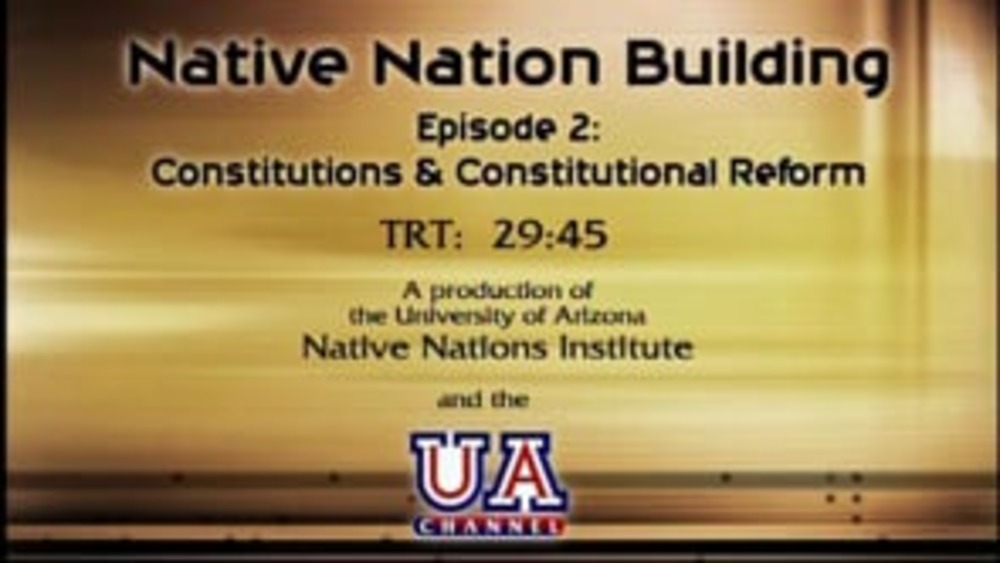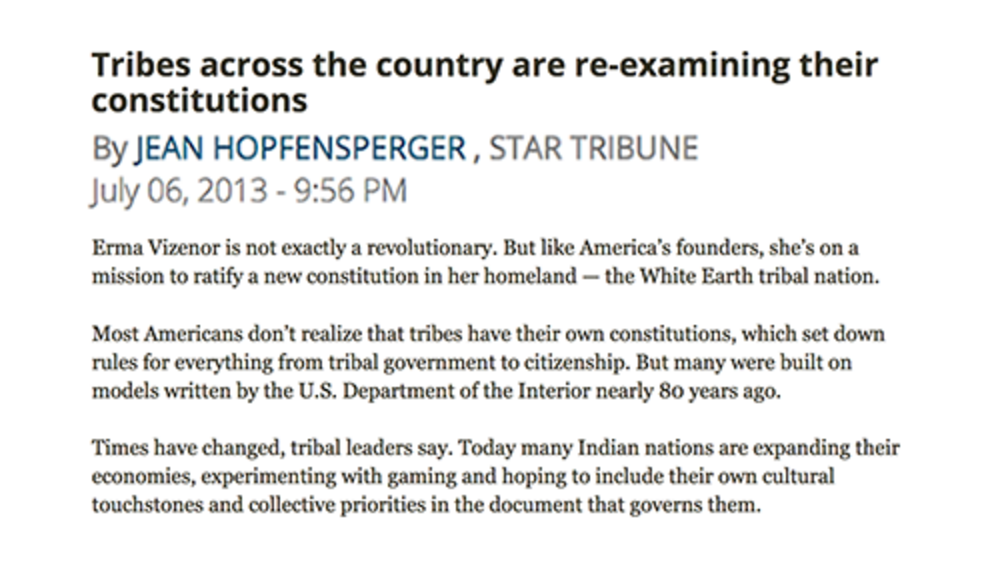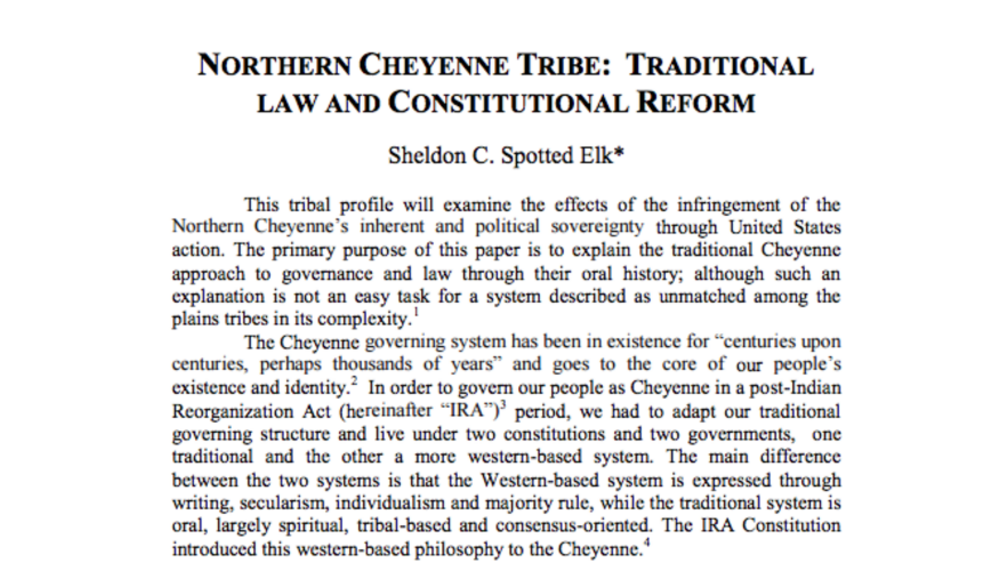This essay examines the recent wave of American Indian tribal constitutional change through the framework of subnational constitutional theory. When tribes rewrite their constitutions, they not only address internal tribal questions and communicate tribal values, but also engage with other subnational entities, i.e. states, and the federal government. It applies that framework to a study of tribal constitutional amendment and reform procedures. Focusing on the processes of constitutional change produces insight into tribes' status as “domestic dependent sovereigns” in the contemporary era of self-determination, a status reflected in the opportunities, and limitations, inherent in tribal constitutions. In so doing, this essay aims to highlight an aspect of tribal constitution writing that enables successful reform and communicates the significance and goals of constitutionalism within the tribal context.
Additional Information
Hipp, Jason P. "Rethinking Rewriting: Tribal Constitutional Amendment and Reform." Columbia Journal of Race and Law. Vol. 4:1, 73-95. 2013. Article. (https://academiccommons.columbia.edu/download/fedora_content/download..., accessed October 18, 2023)




